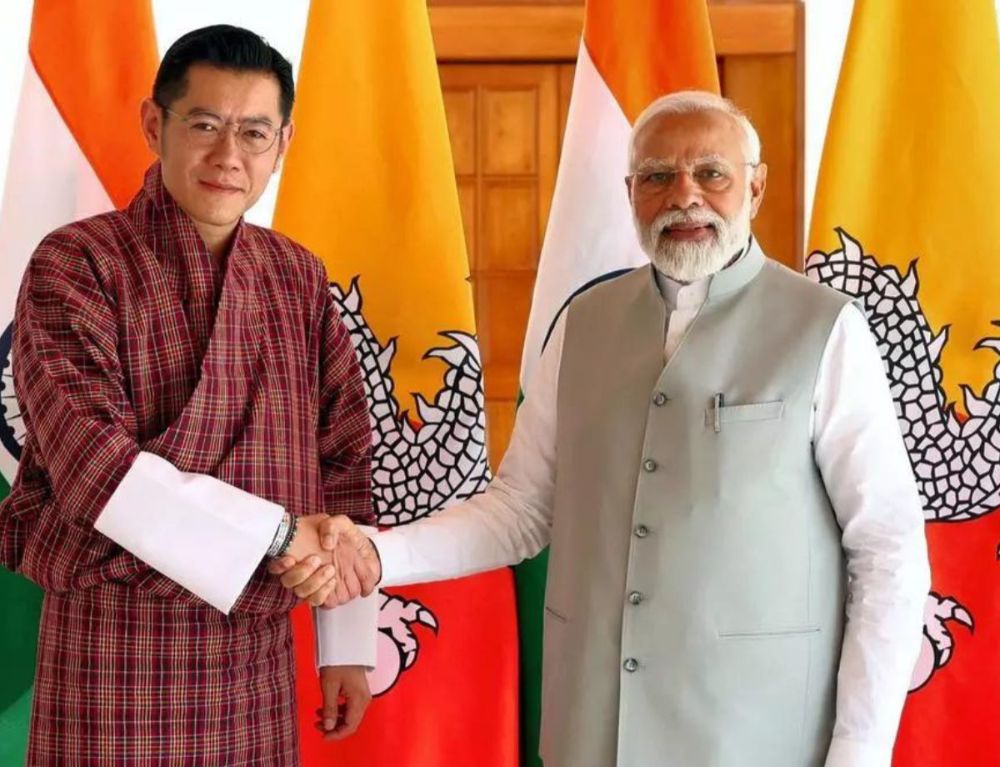On December 18, Bhutan’s King Jigme Khesar Namgyel Wangchuck revealed an ambitious urban development initiative, the Gelephu Special Administration Region (SAR). This strategic project aims to strengthen economic ties between Bhutan and Assam, covering an expansive area exceeding 1,000 square kilometres in close proximity to the Indian border.

Diplomacy in Action
During his 10-day visit to India, the King engaged in discussions with Prime Minister Narendra Modi, outlining the Gelephu project as a crucial component of the Sarpang district Special Economic Zone (SEZ). The comprehensive plan encompasses the establishment of an international airport at Gelephu and explores the potential for a 58-kilometre rail connection between Gelephu and Kokrajhar in Assam. Additionally, feasibility studies for a second rail link, spanning 18 kilometres and connecting Samtse in Bhutan with Banarhat in West Bengal, were initiated.
Bridging Economies: An Economic Corridor
King Jigme Khesar Namgyel Wangchuck positioned the Gelephu project as an “economic corridor connecting South Asia with Southeast Asia via India’s northeastern States.” Expressing gratitude to PM Modi and the Indian Government, the King emphasised the significance of the first India-Bhutan railway line to Gelephu, envisioning seamless connectivity through roadways and border trading and crossing points into Assam and West Bengal. The project’s long-term goal is to extend Bhutan’s access to Myanmar, Thailand, Cambodia, and Singapore.
Gelephu: A Special Administrative Region
Situated in Bhutan’s Sarpang district to the south, the Gelephu project is designated as a “Special Administrative Region,” operating under distinct laws to facilitate increased international investment. The initiative is committed to adhering to environmental standards and sustainability, with a focus on attracting “quality investment” from carefully screened international companies.
Holistic Development: Beyond Infrastructure

The Gelephu project envisions a multifaceted approach to development, incorporating various elements to ensure a holistic transformation. The comprehensive plans include the establishment of an international airport, the promotion of “zero-emission” industries, the creation of a “mindfulness city” leveraging Bhutan’s strength in tourism and wellness, and the incorporation of infrastructure companies to support the region’s growth.
As Bhutan sets forth on this visionary urban development journey, the Gelephu Special Administration Region emerges as a symbol of diplomatic collaboration and sustainable progress, aiming to redefine the economic landscape of the region.
